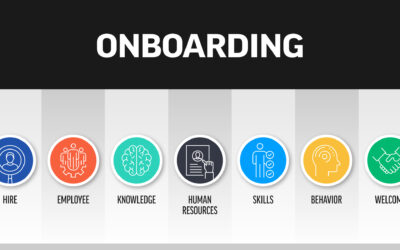The insurance industry is comprised of cycles. Hard-market cycles happen to course correct when rates are inadequate, when there are recessions and economic turnarounds, or when unforeseen events occur, such as the COVID-19 pandemic. However, even though the hardening of the market is happening at a financially inconvenient time, it doesn’t mean that independent agents and their clients won’t overcome these burdens.
Now is the time that to show your clients how much you really care about their wellbeing and their insurance protection. Instead of trying to sell your clients insurance, talk less and listen more. During the last hard-market cycle, I knew an agency owner who was working on a renewal for a business owner with 30 employees. During the discussion, the business owner began to cry over the premium increase of his policy. While the business owner had a budget that would help him continue to run his business, it didn’t factor in such an increase in his insurance premium, and he needed the insurance to keep his business up and running. As they talked, the agent and the business owner found a solution to reduce the insurance premium, so the business could continue to stay open. While that was not ideal, it was necessary. Of course, insureds always need to sign off on any reduction in coverage.
You may insure businesses that have to buy less coverage now, so they are still in business later. As in the example earlier in this article, it’s important to work with these clients by offering sound advice and options. Don’t forget to schedule a talk when everything settles down and they can afford to re-examine their insurance coverages.
Sales techniques during a hard market
Right now, the conversation can’t be your agenda—it must be about your clients’ best interests. Your main goal should be how you can help your clients with what’s going on in their lives and businesses.
In addition to talking less and listening more, agents need to be more tactical and institute a “no surprise” policy at their agencies. Rather than just sending out the renewals with the increased premiums, make sure you build trust with your clients by preparing them for the increases. Be proactive. Let your clients know what’s going on with their insurance carriers and pricing. Reach out before the renewals are sent, so your clients are aware of the changes before they receive the actual increases.
During a hardening market, you need to take it one step further. When everything is status quo, everyone wants to communicate electronically, or by clicking a button—no one wants to be a bother—so if you are out of practice with your phone conversations, it is time for a refresher. It is a good idea to make phone calls to your clients before the renewal notices are distributed. Remember, the person who initiates the phone call is the person who frames the content and tone of the conversation. Being proactive strengthens trust and improves client retention.
Pay close attention to your companies. If you move your client to a different carrier, be aware of the differences between the current and new policies.
Alert your clients to changes in carriers, payment terms, and of course, coverage differences.
An effective way to stay on top of carrier changes is to assign licensed agents to be company resource experts. That way, they can act as the go-to resources for everyone in your agency for specific carriers. On a shared drive, create folders in which company information (policy form changes, billing changes, underwriting memos) can be updated by the resource person and accessed by all. Make carrier updates an agenda item for staff meetings. This is especially important now that most of us are working remotely. Unfortunately, conversations are no longer spontaneous or overheard in the office anymore to pick up important information.
Looking beyond price
Price is only one component of cost. Level of trust, sound advice, prompt response, personal relationship, and being local and an active member of the community all factor into an insurance buyer’s decision.
Educate your clients about why the price has gone up, not just that it is going to increase. Explain what’s happening in the marketplace. Communicate your value as an independent agent and the ability to place their insurance with the best company to suit their needs. Proactive communication and education will help you demonstrate your value, which will make it harder for your clients to switch to online or direct writers.
For those clients who do leave your agency, give them a call (they can ignore an email) 60 days after the effective date to see if they still are happy with their choice. By then, they will have their new policy and bill. Ask them if it’s what they expected. Are the deductibles, coverages, price, and service what they thought they would be? Offer to review the new policy with them to see how it compares to the one they had with your agency. There is a good chance they will see the difference. Remember: Insureds rarely, if ever, will contact you to say they’ve made a mistake. Regain lost business by reaching out to them.
Sales opportunities
While the COVID-19 pandemic has left many people struggling, don’t assume that all of your clients are unable to pay their insurance premiums. Some of your retired personal-lines clients don’t have mortgages and other monthly payments and they are spending less on dining out and vacations. Instead, many of them have used money and time over the last year completing home improvement projects. Reach out to these clients to make sure their insurance coverages are providing adequate protection for any changes.
Conduct account reviews. Account reviews strengthen personal relationships with your clients. They help build and sustain trust. They uncover areas that need better or different coverages. Make account reviews an essential part of your agency’s business plan right now.
Review your prospect list. Many business sectors are growing. If you position your agency correctly, it is the perfect time to go after new business. Consider developing a niche in construction, landscaping, cleaning companies, grocery stores, online marketers and recreational vehicles. Develop a solid marketing plan to generate new business.
There are challenges in every hardening market, but there are opportunities, too. It is essential that you talk with your current clients, keep the lines of communication open, and listen to them. However, it is just as important that you look for new opportunities to help your agency continue to grow. Being proactive and thanking your clients for their business will make a huge difference in your agency’s success.
This article originally appeared in the May 2021 issue of PIA Magazine.

Emily Huling
Emily Huling, CIC, CMC, CSP, is president of Selling Strategies. For the past 25 years, Emily has worked with insurance and financial services organizations that are driven to continually improve and with people who want to excel. Her work has helped create top-performing sales, service, and leadership organizations.






